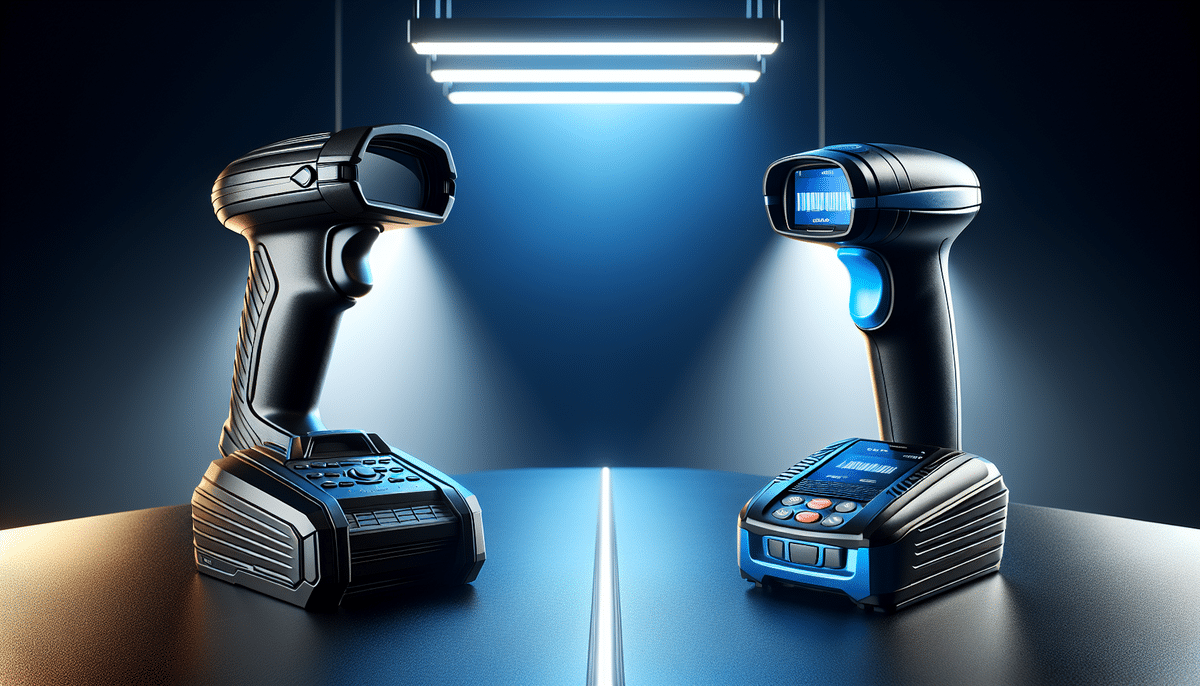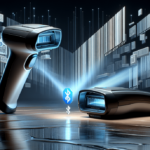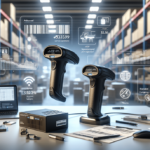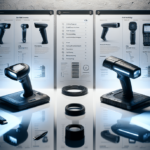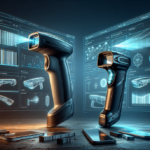Zebra DS8178 vs. Socket Mobile S700: An In-Depth Comparison
Selecting the right barcode scanner is crucial for enhancing operational efficiency in your business. Among the top contenders in the market, the Zebra DS8178 and the Socket Mobile S700 stand out for their advanced features and robust performance. This comprehensive comparison delves into their specifications, functionalities, and overall suitability to help you make an informed decision.
Performance Analysis
Scanning Speed and Accuracy
The Zebra DS8178 offers superior scanning speed, capable of decoding barcodes swiftly with a high accuracy rate, even in challenging conditions. Its Automated Machine Vision (AMV) technology allows for precise scanning from various angles, minimizing errors. According to Zebra's performance whitepaper, the DS8178 can scan over 4,300 images per hour, significantly outperforming the Socket Mobile S700, which offers commendable speed but lower performance metrics.
Scanning Range
The Zebra DS8178 boasts an impressive scanning range of up to 24 inches, making it ideal for large warehouses and retail environments where distance scanning is necessary. In contrast, the Socket Mobile S700, with a range of approximately 15 inches, is more suited for close-proximity scanning tasks typically found in smaller retail settings.
Design and Build Quality
Durability
When it comes to durability, the Zebra DS8178 is engineered to withstand harsh environments. It is built to endure drops from up to six feet and is resistant to dust and water ingress, as detailed in Zebra’s application notes. Conversely, the Socket Mobile S700 features a sleek and lightweight design, which, while enhancing portability, may not offer the same level of ruggedness.
Ergonomics and User Comfort
The Zebra DS8178 provides a comfortable grip and ergonomically placed buttons, facilitating prolonged use without hand fatigue. Its design caters to heavy-duty use in demanding environments. Meanwhile, the Socket Mobile S700’s compact and lightweight structure ensures ease of handling, particularly beneficial for employees who require mobility and frequently move around during their tasks.
Features and Functionality
Scanning Modes and Capabilities
The Zebra DS8178 supports multiple scanning modes, including standard range, high-density, and direct part mark (DPM), offering versatility across various applications. Additionally, it can capture images and signatures, extending its functionality beyond simple barcode reading. In comparison, the Socket Mobile S700 primarily features a single scanning mode optimized for standard barcodes, making it suitable for applications that do not require extensive scanning diversity.
Connectivity Options
Connectivity is a key factor in integrating barcode scanners into existing systems. The Zebra DS8178 provides multiple connectivity options, including Bluetooth, Wi-Fi (supporting 802.11a/b/g/n/ac), and USB, ensuring seamless integration with a wide range of devices and networks. On the other hand, the Socket Mobile S700 relies predominantly on Bluetooth connectivity, which is adequate for most mobile applications but may be limiting for environments that require high-speed or secure network connections.
Battery Life and Power Management
Battery life plays a critical role in minimizing downtime. The Zebra DS8178 offers up to 14 hours of continuous usage on a single charge, with the added benefit of a replaceable battery option, providing flexibility for extended operations. The Socket Mobile S700 offers a respectable battery life of up to 10 hours, which, while sufficient for many applications, may necessitate more frequent recharging in high-demand scenarios.
Pricing and Value for Money
Price is a significant consideration when choosing between barcode scanners. The Zebra DS8178 is positioned at a higher price point, reflecting its advanced features, longer battery life, and robust build quality. In contrast, the Socket Mobile S700 is more budget-friendly, offering essential scanning capabilities without the additional costs associated with advanced functionalities, making it an attractive option for smaller businesses or those with limited budgets.
Pros and Cons
Zebra DS8178
- Pros: High scan rates, versatile scanning modes, rugged build, comfortable ergonomics, extensive connectivity options, long battery life.
- Cons: Higher cost.
Socket Mobile S700
- Pros: Lightweight and compact design, affordable pricing, reliable Bluetooth connectivity, user-friendly interface.
- Cons: Limited scanning modes, shorter battery life, less durable build compared to DS8178.
User Reviews and Feedback
Feedback from users highlights the distinct advantages of both scanners. The Zebra DS8178 is frequently praised for its speed, accuracy, and robust scanning capabilities, particularly in demanding environments such as large warehouses and busy retail floors. Users also appreciate its durability and reliable performance over extended periods.
Conversely, the Socket Mobile S700 is favored for its portability, ease of use, and cost-effectiveness. It is especially popular among smaller businesses and mobile operations where budget and mobility are prioritized. However, some users have reported concerns regarding its battery longevity and durability under intensive use.
Conclusion: Choosing Between Zebra DS8178 and Socket Mobile S700
Ultimately, the choice between the Zebra DS8178 and the Socket Mobile S700 hinges on your business's specific needs and budget. If your operations demand high performance, durability, and versatile scanning capabilities, the Zebra DS8178 is the superior choice, despite its higher cost. However, if you are seeking a cost-effective, lightweight, and reliable scanner for mobile and less demanding environments, the Socket Mobile S700 presents an excellent value proposition.

